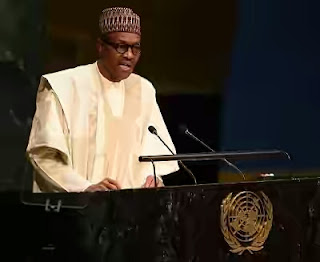Just after the inauguration of Nigeria’s latest ministers, Forbes' analyst took some time to take a critical assessment of some key elements in the cabinet.
Former banker, Kemi Adeosun has been appointed Nigeria’s new finance minister by the country’s president Muhammadu Buhari. She faces an uphill struggle to shore up Africa’s largest economy, which has been battered by a 40% fall in the price of oil.
GDP growth has slowed to 4% this year, and the government may have to push through more unpopular cuts to subsidies and infrastructure investments to plug the holes in its finances. Oil makes up around 60% of the government’s budget.
Adeosun, who has been the finance commissioner for Ogun State since 2011, is a former managing director at Chapel Hill Denham, a Lagos-based investment bank, according to her LinkedIn LNKD +2.33% profile.
“Adeosun’s appointment to head the most important ministry during a time of economic crisis will stir some controversy. She is relatively inexperienced, especially compared to her immediate predecessor Ngozi Okonjo-Iweala, a political heavyweight,” says Malte Liewerscheidt, senior Africa analyst at Verisk Maplecroft.
“Adeosun has a strong background in the UK’s private financial sector but may struggle to navigate federal politics as the only post she previously held in Nigeria was Commissioner of Finance in Ogun State.”
Okechukwu Enelamah, head of the private equity company African Capital Alliance who had also been tipped to become finance minister, has been sworn in as minister of trade and investment. First on his to-do list will be rehabilitating Nigeria’s reputation as a destination for foreign direct investment, which has been dented by the huge and high-profile fine handed to South African telecommunications operator MTN.
Babatunde Fashola, the former governor of Lagos State, has been put in charge of the power, works and housing portfolio, overseeing infrastructure. Buhari appointed himself oil minister in September.
Buhari, who won elections in March on a populist, reformist, anti-corruption platform, took nearly five months to name his cabinet, and only announced which of his nominees would hold which portfolios on November 11, when they were sworn in.
Some analysts said that the vacuum in political leadership has hampered policymaking during difficult period for the Nigerian economy and exacerbated the downturn.
Without clarity in economic policymaking, the Central Bank of Nigeria has attempted to use monetary policy tools to limit the damage to the economy, imposing limited capital controls and spending the country’s foreign currency reserves to prop up the naira.
“While losing precious time, the new government was unable not only to unveil much-needed economic and political reform… but it was also unable to present the budget for next year nor push forward urgent infrastructure programs,” Ricard Torné, FocusEconomics’ senior economist for Sub-Saharan Africa, said last month.
Forbes.com

No comments:
Post a Comment